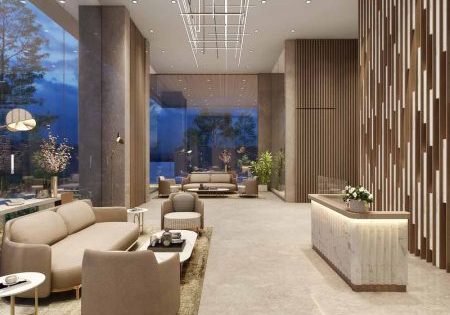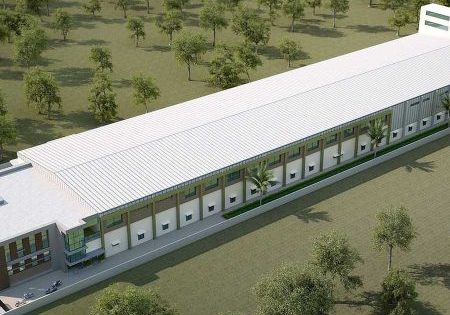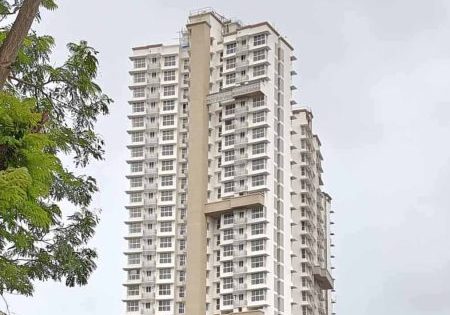The demand for high-speed, advanced VT in Mumbai could rise exponentially as the Maharashtra government considers raising the building height cap from 120 m to 180 m.
The higher the structure, the faster and more technologically advanced vertical transportation (VT) it requires. Going by this analogy, the future for the VT industry in western India, especially Mumbai — the nation’s financial and business capital — seems quite bright going forward.
Earlier this year, the Maharashtra government proposed raising the height limit for high-rise buildings from 120 m to 180 m, a move that would require approval from the Brihanmumbai Municipal Corp. (BMC) Technical Committee.
Currently, a 120-m structure accommodates approximately 40 floors, but with the proposed increase, high-rise buildings could go up to between 50 to 60 floors. This initiative has been warmly welcomed by the real estate industry, with several housing experts offering their insights into the potential impact of the change.
Prashant Sharma, president, National Real Estate Development Council Maharashtra, said:
“This proposal to redefine high rises from 120 m to 180 m is a welcome move that will significantly streamline the approval process for tall buildings in Mumbai. By reducing bureaucratic hurdles, this change will accelerate project timelines, enhance ease of doing business and contribute to the city’s vertical growth in a more efficient manner. Given Mumbai’s space constraints, vertical development is the key to meeting rising housing demand, and this step aligns with the broader vision of urban expansion. However, it is essential that robust structural safety norms and regulatory oversight remain in place to ensure sustainable and resilient urban development.”
Shraddha Kedia-Agarwal, director, Transcon Developers, opined:
“Allowing taller buildings presents a tremendous opportunity to make smarter, more efficient use of space, which is essential for sustainable development. By optimizing available space, we can guide the city’s growth in a way that is both effective and environmentally responsible. This approach is critical for creating a vibrant, sustainable city that meets the needs of a growing population without expanding its footprint. Taller buildings enable us to maximize space, making the city more dynamic and adaptable to future demands. Ultimately, it’s about fostering a city that not only thrives today but remains strong and resilient for generations to come.”
Samyak Jain, director, Siddha Group, emphasized:
“Raising the building height limit from 120 m to 180 m is a significant step forward in driving the city’s growth and shaping a brighter, more progressive urban landscape. This move aligns perfectly with our vision of developing modern, innovative spaces that address the evolving needs of a growing population. As cities expand, it’s crucial to adapt by providing more housing, commercial spaces and infrastructure, all while preserving a high quality of life for future generations. Taller buildings contribute to sustainability by optimizing land use, reducing urban sprawl and enhancing energy efficiency. Studies show that high-rise apartments consume less energy per capita than detached houses due to shared walls and centralized systems. By incorporating sustainable design choices, such as energy-efficient materials, green roofs and renewable energy integration, we can ensure that vertical growth becomes a catalyst for a more efficient, livable and environmentally responsible urban future.”
Nishant Deshmukh, founder and managing partner, Sugee Group, explained:
“In a city like Mumbai, where real estate is limited and the demand for high-quality living spaces is ever-growing, this presents a remarkable opportunity to optimize the use of available resources. It opens the door to creating more premium residential developments that align with our commitment to excellence, customer satisfaction and delivering projects on time. This is a significant step towards shaping a more spacious, sustainable and modern Mumbai.”
Rohan Khatau, director, Cable Corp. of India Projects, pointed out:
“The proposal to raise Mumbai’s high-rise height limit to 180 m presents an exciting opportunity for urban growth. However, this must be accompanied by robust infrastructure upgrades — spanning transportation, water supply and waste management — to effectively support higher density. Equally crucial is a strong focus on sustainability in both design and construction to minimize environmental impact. Safety regulations must also evolve to address the complexities of taller structures, while ensuring that affordable housing remains a key priority. If implemented with a holistic approach, this policy could help shape a more modern, resilient and inclusive Mumbai.”
Govind Krishnan Muthukumar, managing director and co-founder, Tridhaatu Realty, underlined:
“We are dedicated to creating aesthetically pleasing and thoughtfully designed spaces. The news of increasing the building height limit is a positive and exciting step forward in that direction. It opens up new opportunities to craft innovative, spacious and sustainable developments that enhance the living experience while contributing to the city’s growth and skyline.”
Abhishek Jain, chief operating officer, Satellite Developers Pvt. Ltd., shared:
“The proposal to raise the building height limit from 120 m to 180 m is a promising development for Mumbai, particularly in addressing the city’s space constraints. This presents a unique opportunity to create enhanced living and working spaces that are thoughtfully designed to elevate the lifestyles of our customers, while also meeting their demand for modern, spacious and sustainable buildings.”
Real estate developers and VT industry members are eagerly awaiting confirmation that could truly transform their business revenues and profitability during the current financial year and beyond!
Get more of Elevator World. Sign up for our free e-newsletter.







